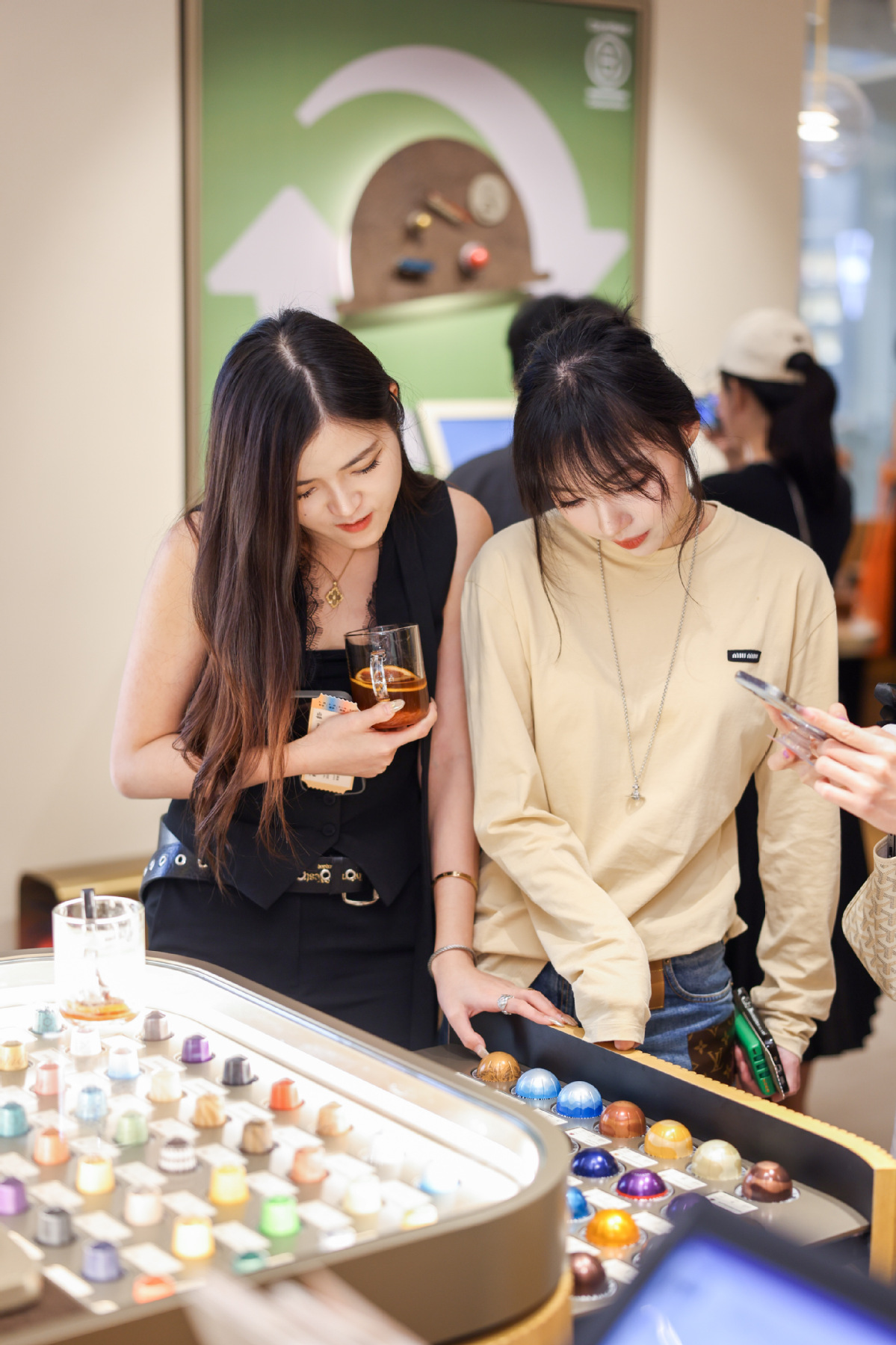

According to Zero Power Intelligence Group, Europe leads the global capsule coffee machine market, accounting for over 40 percent of market share, with North America close behind at about 30 percent. The Asia-Pacific and Latin American regions are among the fastest-growing markets.
The report said the global capsule coffee machine market reached around $18 billion in 2023 and is expected to grow to $23 billion by 2026, with a compound annual growth rate of 5-6 percent. In China, the market is expanding steadily, reaching 3 billion yuan ($414 million) in 2023, a year-on-year increase of 13.69 percent.
Within the sector, rivalry is heated.
By units sold in the Chinese market, Nestle SA leads the market, followed by brands like domestic brand Joyoung and Italy's De'Longhi, according to Euromonitor International.
Their business model is mainly based on the repeat buying of its coffee capsules. Localization and innovations are two drivers for boosting sales of capsule sleeves.
The company offers over 30 types of Original coffee, 30 Vertuo coffee, 14 professional options and limited editions featuring rare varieties from around the world. The brand also produces coffee machines that deliver a precisely portioned cup with each capsule.
Even the size of capsules has been adapted in recent years to local tastes and habits.
When Nespresso entered the Chinese mainland market in 2007, it introduced its Original series, primarily focused on espresso-style coffees between 40 milliliters and 110 ml. By 2014, the company launched its Vertuo series in China to meet growing demand for larger servings, ranging from 230 ml to 414 ml.
"Around 93 percent of Chinese consumers prefer a larger cup — typically over 200 ml — to start their day," said Lu.
On innovations in coffee and packaging, Lu said they have constantly created limited-edition capsules from rare plantations that enhance cultural relevancy and help raise product appeal.
In-store experience also matters to connect with consumers and stimulate the imagination.
The brand has worked with a film festival that supports young filmmakers in China for five years. At stores, visitors are invited to sit and view short films while sipping a coffee.
The company also holds book club events where people gather in the evening to read alongside authors.
"We aim to create moments that resonate, making coffee a companion during experiences where people feel emotionally connected to art," Lu said.
Beyond retail, Nespresso has also expanded into modern trade, hospitality and office spaces.
The brand has set up 15 pop-up stores at Sam's Clubs (Walmart's high-end membership stores) and the second batch of 11 such stores within Sam's is in the pipeline.
The company also supplies coffee to five-star hotels and office buildings.
Nespresso now serves more than 170,000 hotel rooms, executive suites and restaurants. The company's focus on sustainability gives it an edge in corporate settings.
"Companies have ESG goals, and our process offers portioned coffee without water or electricity waste, positioning us favorably for procurement," said Lu.
However, challenges remain, such as the high cost of capsule machines, low consumer awareness and lack of brand loyalty, which require significant investment in education and brand building, analyst Gao added.
"The rapid development of on-premises coffee and lower-price strategies have fueled a strong value orientation among local consumers," Gao said. "Alternative coffee devices like espresso makers and hand-brew pots are also capturing a share of the market."